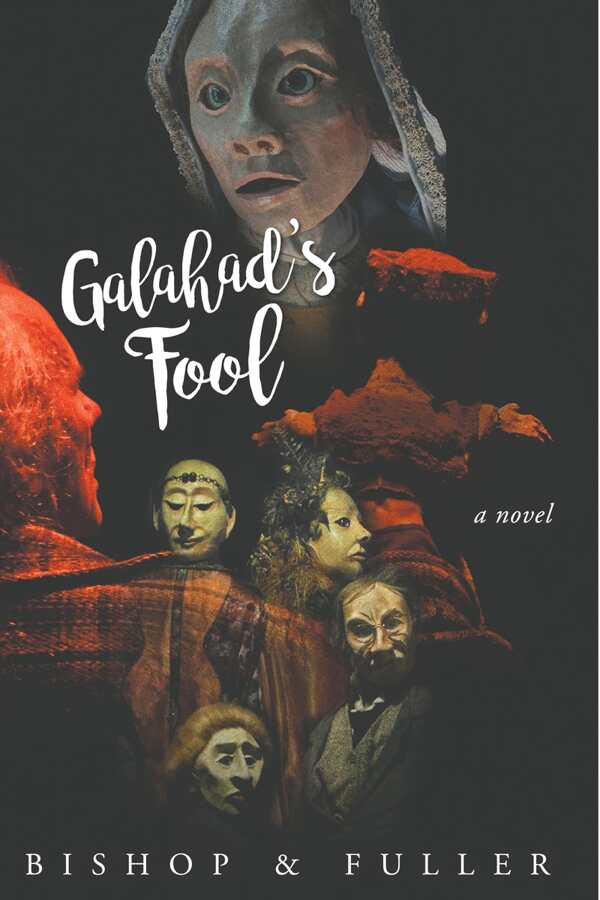Galahad's Fool
Conrad Bishop and Elizabeth Fuller reimagine the search for the grail in Galahad’s Fool, an experimental, labyrinthine work that highlights the all-consuming nature of art.
Drawing from decades of experience behind and on the stage, Bishop and Fuller create a visceral, affecting portrayal of a widower and puppeteer. The grieving Albert Fisher sets out to write a new play; in his desire to honor his late wife’s call to bring people hope, he wrestles with a Galahad whose traits too closely resemble his worst.
Albert’s waking hours often bring up memories of his wife and cocreator, Lainie. Chapters alternate between trips to cafés; conversations with his daughter, Mara; memories of his lengthy career; the workmanlike details of preparing for Galahad’s Fool; and meetings with Jeanette, a costumer who spurs Albert forward.
As Albert puzzles over what his characters should do, his dreams unfold in a lurid panorama. Snippets of the play he’s creating appear at regular intervals; intrusions examine Albert’s views on how it is evolving, resulting in a perceptive account of the torturous writing process. Winding as the text becomes, it’s a fitting analogy for Albert’s life, which must also undergo excisions and reinventions.
The sense of controlling the play’s direction while still being led by greater forces complicates Albert’s journey. What Albert intended as a comedy takes a sharp swerve when his characters—including a family of tourists—introduce themselves and realize a “god” (Albert) is building their futures. Without turning acerbic, the play is at once an exorcism and a creation, allowing the line between the writer and the written to blur in a brilliant closing act.
Galahad’s Fool takes themes of aging, metacognition, and loss to unexpected places. Scenes skillfully reveal self-doubts and bursts of generative insight. Albert’s deep investment in the project, which increasingly turns autobiographical, probes raw seams, but it’s there—in the tangled, absurd quest laced with darkness—that healing begins.
Reviewed by
Karen Rigby
Disclosure: This article is not an endorsement, but a review. The publisher of this book provided free copies of the book to have their book reviewed by a professional reviewer. No fee was paid by the publisher for this review. Foreword Reviews only recommends books that we love. Foreword Magazine, Inc. is disclosing this in accordance with the Federal Trade Commission’s 16 CFR, Part 255.

